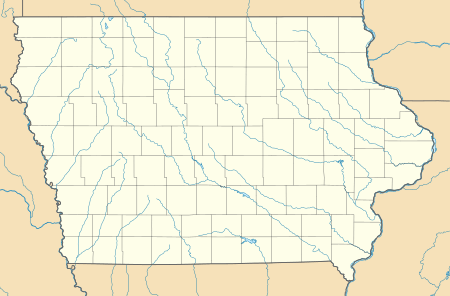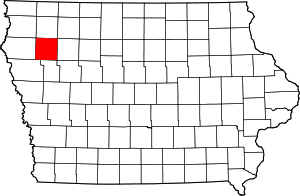Cherokee Sewer Site
The Cherokee Sewer Site is a multi-component Prehistoric Indian Archaic bison processing site excavated in 1973 and 1976 near the sewage treatment plant of Cherokee, Iowa, United States; it is not associated with the Cherokee tribe. It is important because it shows a transition in bison hunting strategy during the Archaic period in the Americas. Data from the Cherokee excavations produced some of the earliest models for climate change in the Midwest.[2][3] It is listed on the National Register of Historic Places.
Cherokee Sewer Site | |
  | |
| Nearest city | Cherokee, Iowa |
|---|---|
| NRHP reference No. | 74000777 [1] |
| Added to NRHP | December 24, 1974 |
References
- "National Register Information System". National Register of Historic Places. National Park Service. April 15, 2008.
- Anderson, Duane; Semken, Holmes A. (1980)The Cherokee Excavations: Holocene Ecology and Human Adaptations in Northwestern Iowa. Academic Press, New York.
- Whittaker (1998) The Cherokee Excavations Revisited: Bison Hunting on the Eastern Plains. North American Archaeologist 19(4):293–316.
This article is issued from Wikipedia. The text is licensed under Creative Commons - Attribution - Sharealike. Additional terms may apply for the media files.

